Indonesia’s first privately run floating hospital boat brought a tidal wave of change in the sea of poverty, providing critical healthcare services, often for the first time, to some of the country‘s most underserved communities.
The Indonesian archipelago consists of over 17,000 islands, many of which have no access to electricity or clean water, let alone basic infrastructure or healthcare facilities.
According to the latest World Bank estimates, the country’s current healthcare system can only accommodate 1 physician and 7 hospital beds per 10,000 people.
In response to these dismal figures, in 2014 Indonesia launched a nationwide health insurance system (Jaminan Kesehatan Nasional) — the largest in the world — with the aim to achieve universal health coverage for its population of 250 million by 2019. In practice, however, many of those eligible to receive free medical care are unable to take advantage of the scheme.
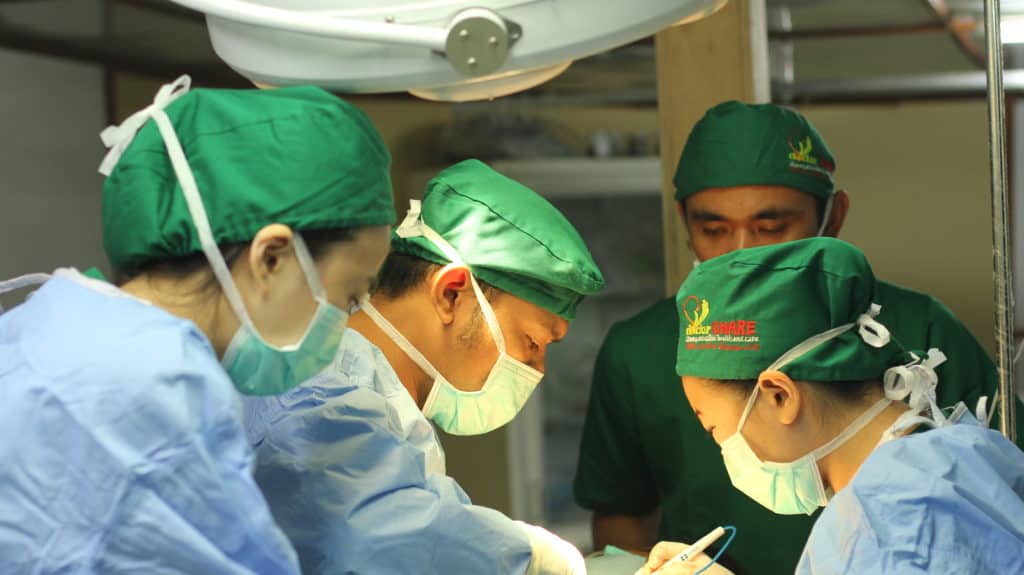
Due to administrative shortcomings, people on the remote islands of Indonesia have failed to register, and even if they manage to obtain a health insurance card, making the journey to the nearest urban area with a health clinic would require considerable effort and expenses that they simply can’t afford. NGOs such as doctorSHARE, the organisation operating the country’s first privately run floating hospital, play a critical role in addressing this stark infrastructure and healthcare bottleneck.
In March 2009, Dr. Lie Dharmawan, Founder of doctorSHARE, was on a volunteer medical trip in Southeast Maluku Regency in the Eastern part of Indonesia, when all of a sudden, he found a despaired mother pleading with him to operate on her 9-year-old daughter who was suffering from a case of strangulated hernia.
Medical experts would advise for immediate surgery within 6 to 8 hours of the diagnosis to ensure full recovery, yet mother and daughter had had to sail for three days, two nights to reach the closest medical staff.
The girl made a miraculous recovery following the operation, but the thought that he could do more continued to weigh on Dr. Lie’s mind. This was what ultimately compelled him to invest in a vessel which eventually came to house doctorSHARE’s first floating hospital.
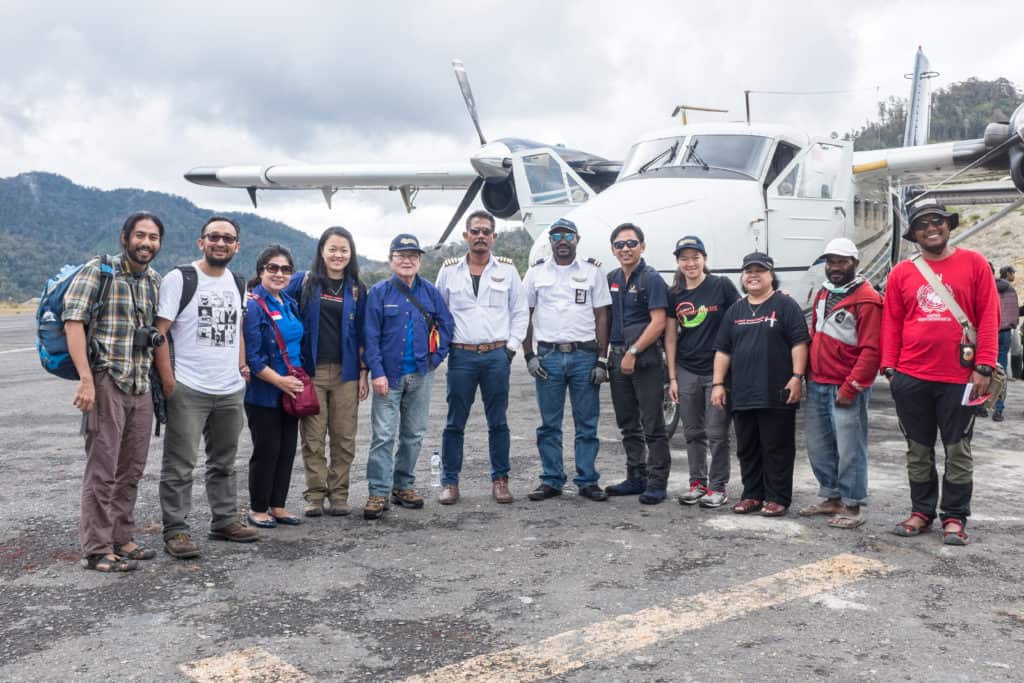
Dr. Lie, who originally hails from Padang, West Sumatra, vowed to never forget his humble beginnings and spent the bulk of his career healing patients who would have otherwise not been able to afford or access medical care. Following the completion of his scholarship studies in Germany, he returned to Indonesia and dedicated his life to creating a more inclusive healthcare system in the country.
“I realised that instead of asking for the impossible by requiring villagers to spend valuable resources – costing them often their entire livelihoods – to get to the nearest clinic, I must find a solution to bring medical services to their doorstep,” shares Dr. Lie.
It took him four years, extensive research, and several trips overseas to find a suitable vessel that could navigate the narrow waterways between the islands, as well as selling his own house to amass the necessary funds. In 2013, doctorSHARE’ s first floating hospital, Rumah Sakit Apung (RSA) Dr. Lie Dharmawan made its maiden trip with 18 physicians serving onboard at the time.
Fast forward another four years, and more than 250 doctors have actively donated their time to assist the NGO that is still operated exclusively by volunteers. doctorSHARE has, to date, assisted in 25 medical and humanitarian missions, over 800 surgeries, and more than 7500 outpatient cases.
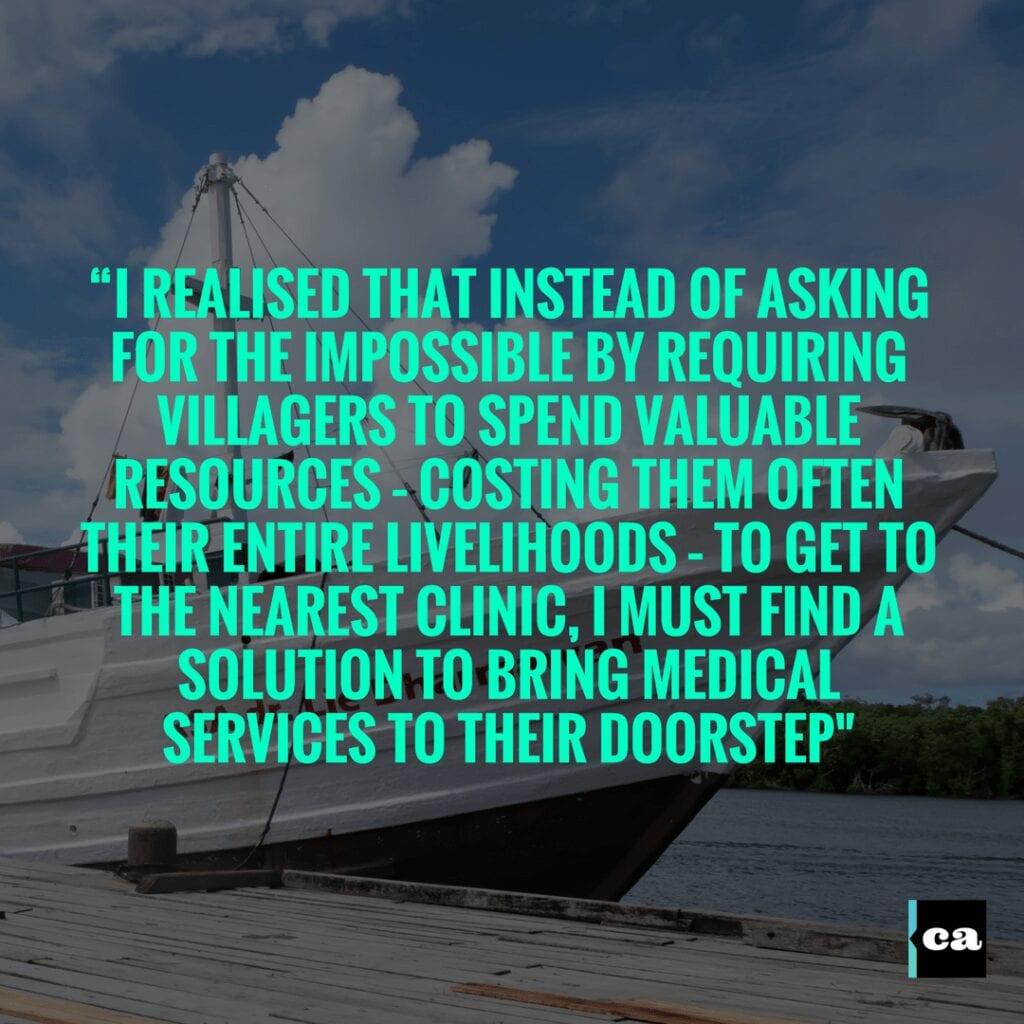
In 2015, the charity introduced its flying doctor service to look after the mountainous areas of Papua, which are only accessible via air, motorcycle, or on foot. doctorSHARE also runs therapeutic feeding centres to reduce malnutrition in children, as well as preventative health counselling to educate vulnerable communities..
The NGO currently manages two floating hospitals, with a third barge due to be unveiled at the end of 2017. The new ship, named RSA Nusa Waluya II, will serve Maluku, a province which has despairingly high maternal and neonatal mortality rates – 199 out of 100,000 pregnancies result in a mother’s death and nine out of a thousand newborns don’t survive the first 28 days of their life.
“We need around US$800,000 to transform the barge into a floating hospital and to buy the necessary medical equipment,” says Julia Windasari Tan, Business Development Manager of Multi Agung Sarana Ananda (MASA), the shipping company that donated the third vessel to doctorSHARE.
Upon hearing Dr. Lie share about his life journey and doctorSHARE’ s mission, Julia’s father, who owns the company, was immediately convinced that he would like to contribute to Dr. Lie’s visionary goal of bringing quality healthcare to the poorest and hardest-to-reach regions.
Fundraising started in 2016, and following doctorSHARE’s latest charity event, which saw an impressive amount of almost US$400,000 collected, the non-profit is close to reaching its target within less than a year. Renovation is already underway to build the three-storey hospital, and operation could begin in the next four months. The new vessel will serve 150,000 patients and train more than 400 health practitioners in the 85 islands of Western Southeast Maluku.
Figures, while impressive, can hardly do justice to the lives of each patient encountered by doctorSHARE’s medical staff. It tugs at the heartstrings to see so much hope and gratitude despite the unimaginable suffering experienced by vulnerable communities across Indonesia.
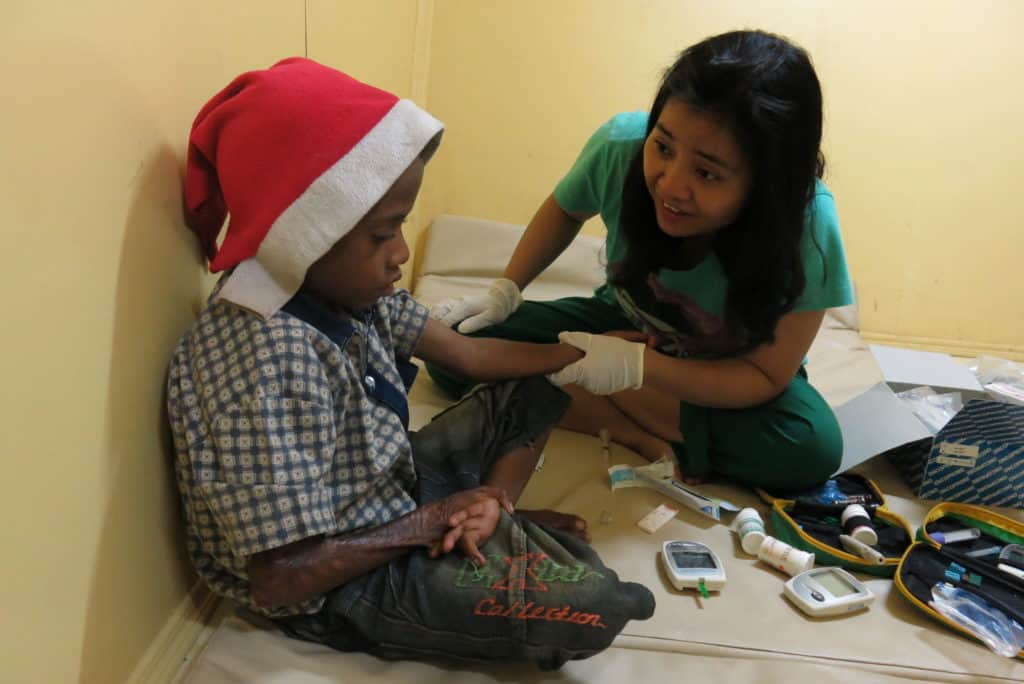
Armeks, a 9-year-old boy from a village in West Papua’s Inanwatan district where lamps are still lit by gasoline, underwent surgery in the floating hospital to treat burn scars that resulted from an accidental fire. His whole body was burnt with severe injuries on his back, right hand and right leg, and despite a month of intensive care in the Inanwatan Community Health Centre (Puskesmas Inanwatan), he was unable to reach full recovery.
Armeks had suffered physically and emotionally for six years — his pain exacerbated by the cruel mockery of children in his class — before receiving critical surgery that enabled his hands to become fully functional again. His father, a teacher by profession, took up multiple side jobs to provide for his family of seven, while also shouldering the costs of Armeks’ treatment following the accident. He would have never been able to afford the surgery that proved life-changing for his son’s physical health and mental well-being.
Another patient, Nasir, was treated for hernia on board RSA Nusa Waluya I, doctorSHARE’s second floating hospital, during the ship’s medical mission to East Tanjung Jabung District, Jambi in Central Sumatra. At the time he had already been displaying the symptoms of this disease for two years, including chronic abdominal pain. He was also aware that his father, a rice farmer, would never have been able to pay for the costs of a surgery. Nasir soldiered on, downplaying his suffering so he could participate in sports competitions as his school’s representative. As a rising star athlete for his village, he didn’t want to let his fellow classmates and teachers down, persevering at the expense of his own health.
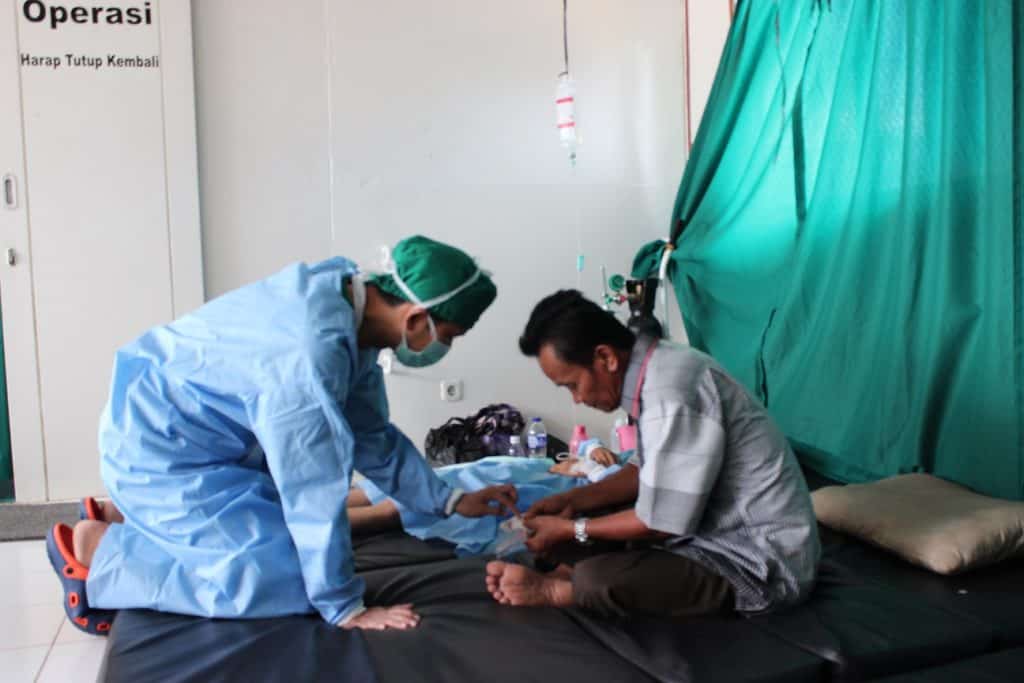
While treating his hernia, the doctors also found that he had a testicular anomaly known as cryptorchidism. In his case, one of his testicles had not descended. Typically, such cases are treated through surgical intervention within the first year of birth to reduce the risk of testicular cancer. If left untreated, his risk of testicular cancer would have been significantly higher compared to men with healthy testicles. Nasir, fourteen at the time, obviously didn’t undergo treatment in time, so medical support by doctorSHARE was crucial to prevent any life-threatening disease from developing. The teenage boy faced surgery with a fearless mind and a beaming smile, as if he knew for certain how bright his days will be following the operation.
These are just few of the countless stories recounted by the volunteer doctors. Each and every patient’s journey is unique and I, for one, feel extremely privileged to be able to spread the word on doctorSHARE’s mission as the hospital boats continue to sail across the archipelago, making a life-changing difference to those trapped in poverty and hardship.
* Any views expressed in this article are those of the author and not the organisations represented.








